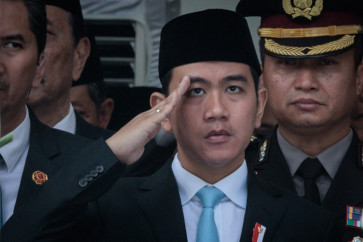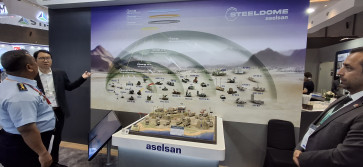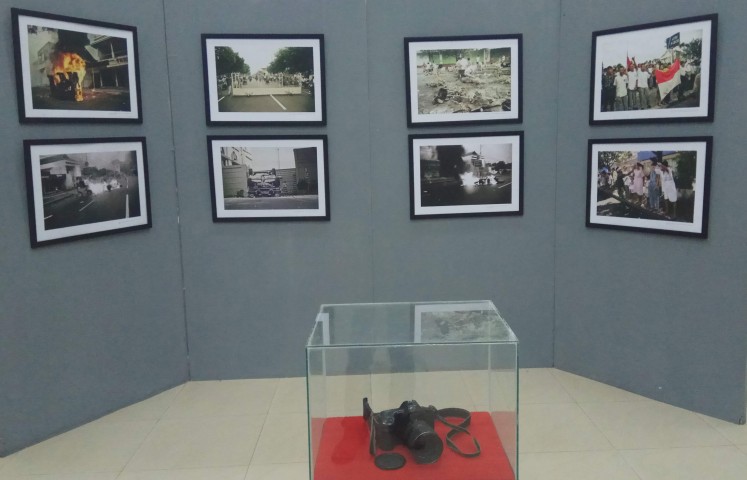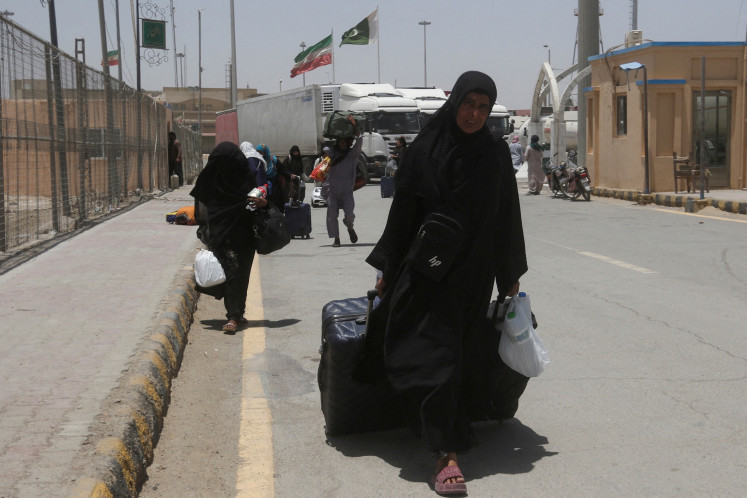Popular Reads
Top Results
Can't find what you're looking for?
View all search resultsPopular Reads
Top Results
Can't find what you're looking for?
View all search resultsLaid off workers seek partial responsibility from Uniqlo
Hundreds of workers of the now bankrupt garment firm PT Jaba Garmindo have now turned to Japan’s Fast Retailing Co
Change text size
Gift Premium Articles
to Anyone

H
undreds of workers of the now bankrupt garment firm PT Jaba Garmindo have now turned to Japan’s Fast Retailing Co. Ltd., to ask the retail giant to take partial responsibility for their hardship.
Fast Retailing is the company behind the Uniqlo brand, which entered Indonesia in July 2013, and was a major client of Jaba Garmindo, owned by Djoni Gunawan.
“We know that under Indonesia’s Bankruptcy Law, there is no responsibility for clients of a bankrupt supplier to take care of the affected workers, but in this case Uniqlo is bound by the United Nations’ guidelines on business ethics,” Teddy Senady Putra, a labor union leader, said during a demonstration outside the Japanese Embassy in Jakarta on Thursday.
He was referring to the UN Guiding Principles on Business and Human Rights, which was endorsed by the UN Human Rights Council on June 16, 2011.
Article 18 of the principles says that in order to gauge human rights risks, business enterprises should identify and assess any actual or potential adverse human rights impacts with which they may be involved either through their own activities or as a result of their business relationships.
“The process should draw on internal and/or independent external human rights expertise and involve meaningful consultation with potentially affected groups and other relevant stakeholders, as appropriate to the size of the business enterprise and the nature and context of the operation,” it says.
Teddy claimed Uniqlo’s reduced orders contributed to Jaba Garmindo’s financial woes, resulting in Jaba Garmindo’s escalating debt, eventual bankruptcy and billions of rupiah in unpaid wages.
Teddy — who heads the Federation of Indonesian Metal Workers Unions’ (FSPMI) Jaba Garmindo unit — said 2,000 workers ad been laid off from Jaba Garmindo’s factory in Tangerang, Banten.
Another 2,000 workers were laid off from the company’s factory in Majalengka, West Java, but are not represented by the FSPMI.
“The 2,000 workers of Jaba’s factory in Tangerang worked until June 2015, but were only paid until February 2015, so there’s four months of unpaid wages, excluding holiday bonus, severance pay and other rights,” he said.
The union claims the unpaid wages amount to Rp 15.6 billion (US$1.17 million) and other outstanding payments are estimated to total Rp 84.4 billion. None of the amounts have been paid, despite reports that the firm has assets worth Rp 125.04 billion.
The FSPMI — along with the Federation of Independent Trade Unions’ (GSBI) Jaba Garmindo unit — plan no legal action against the company’s clients and will just communicate with their respective embassies in Indonesia.
It plans on communicating with officials at the German and UK embassies to ask for partial compensation from German fashion companies Oliver Bernd Freier GmbH & Co. KG and Gerry Weber International AG, and from UK uniform supplier Trutex Ltd.
The Central Jakarta Commercial Court decided in July last year that Jaba Garmindo must prioritize compensation for its workers before paying its creditors, with reported total debt of Rp 2 trillion.
Contacted separately, Jaba Garmindo lawyer Samuel Goklas refused to comment specifically regarding the unions’ demand to Uniqlo, but said his client’s bankruptcy was inevitable due to improper business planning.
As for the unpaid wages, the firm has yet to disburse payments because some creditors have objected to disbursements from sold assets.
“The court trial ruled that workers should be the first to be compensated, but it didn’t state any proportion,” he said.
An email sent by The Jakarta Post to Fast Retailing seeking comment had not been responded to by the time of publication.
Meanwhile, Indonesia Textile Association (API) chairman Ade Sudrajat said that demanding compensation from a third party was not the right move under Indonesian Law.
“Demand your rights from Jaba Garmindo, but not its clients, despite whatever is written in the UNGP [UN guiding principles]. What applies here is Indonesian law, not the UNGP,” Ade said.









